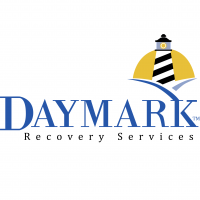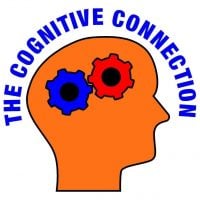McLeod Addictive Disease Center - Statesville
Drug Rehab Center in Statesville, North Carolina
McLeod Addictive Disease Center is an accredited facility in Statesville, North Carolina that offers comprehensive treatment services for addiction and mental health which include detox, after care support, drug rehab, and outpatient treatment with evidence- based treatment options such as 12-step facilitation and cognitive behavioral therapy.
About This North Carolina Facility
McLeod Addictive Disease Center, founded in 1969 by Dr. Jonnie H. McLeod, is dedicated to supporting those struggling with substance use disorders in Statesville, North Carolina. The center aims to help individuals maintain a drug-free lifestyle through education, intervention, treatment, and support.
McLeod Addictive Disease Center focuses on treating alcoholism, dual diagnosis, opioid addiction, substance abuse, drug addiction, and mental health issues.
The center offers detoxification programs, drug rehabilitation, aftercare support, and outpatient levels of care. McLeod Addictive Disease Center is accredited by CARF, SAMHSA, and holds a state license, ensuring quality and affordable treatment for both DWI and non-DWI clients.
- Comprehensive and personalized treatment plans
- Morning and evening classes for convenience
- DWI program satisfies assessment recommendations and begins license restoration process
- Notification to DMV upon successful completion of treatment
North Carolina faces a significant opioid epidemic. McLeod Addictive Disease Center helps combat this issue by providing evidence-based treatment, support, and resources to individuals struggling with opioid addiction.
Individuals seeking to overcome substance abuse, maintain sobriety, and improve their mental health would benefit from the services provided at McLeod Addictive Disease Center.
Genders
Ages
Modality
Additional
Accreditations
State License
SAMHSA

CARF
The Commission on Accreditation of Rehabilitation Facilities (CARF) is a non-profit organization that specifically accredits rehab organizations. Founded in 1966, CARF's, mission is to help service providers like rehab facilities maintain high standards of care.
Conditions and Issues Treated
The inappropriate use of any drug in Statesville, NC is substance abuse. This involves alcohol, medications, and illicit drugs. With a combination of physical and psychiatric therapies, drug addiction is successfully treated at McLeod Addictive Disease Center - Statesville. After Detox is complete, individuals follow-up with treatments treating the root cause of the addiction.
Opioid Addiction Treatment supports people recovering from addiction to prescription drugs as well as illegal opioids. This is a hospital-based or residential treatment. Depending upon one’s age, detox without the appropriate medication may be unpleasant or even dangerous–some get body aches, fever, chills, while others may even have seizures.
Opioid treatment involves medically assisted detox, physical and mental support. Most rehabilitations use an array of treatments to ensure overall wellbeing, such as Medication-assisted therapy (MAT) in which one gets behavioral therapy, medicines, and counseling. A client-centered approach can reduce one’s chances of relapse. Therapists at work with the client to figure out environmental and behavioral triggers, giving them the power to change the patterns.
Levels of Care Offered at McLeod Addictive Disease Center - Statesville
This center offers a variety of custom treatment tailored to individual recovery. Currently available are Aftercare Support, Detox, Drug Rehab, Outpatient, with additional therapies available as listed below.
Detoxification is a reduction in the effects of drugs and alcohol. It can be beneficial for people who have a history of withdrawal, who are at risk for dangerous health concerns, or who are unable to function well in their day-to-day lives due to addiction.
Detoxification is beneficial for:
- People who are unable to overcome addiction without the help of professional care.
- People who are at risk for dangerous health conditions due to withdrawal.
- People who are at risk for overdose or serious health concerns after a relapse.
If you believe that addiction treatment is right for you or a loved one, you can contact your primary care physician, or search for addiction treatment centers in your area. Treatment is beneficial to people who are motivated towards recovery, and who understand the benefits of professional care.
Outpatient rehabilitation is a treatment that exists if a patient is not checking into McLeod Addictive Disease Center - Statesville long term. In addition to helping them recover, the patient attends regular therapy sessions and detox and participates in other therapies. However, this is all primarily done from home. As a follow-up to inpatient treatment, outpatient treatment is usually recommended.
After rehabilitation, it helps people return to their everyday lives. It may also be an alternative to inpatient care in some situations. If they cannot leave their jobs, children, or don’t have the money for inpatient care, people can choose this method. Inpatient therapy, however, is the best method and most suggested level of treatment offered by McLeod Addictive Disease Center - Statesville in recovering from addiction.
Treatment for substance abuse does not cease after an individual successfully completes a detox or rehabilitation program. A vital follow-up treatment service is aftercare support provided to individuals at McLeod Addictive Disease Center - Statesville in North Carolina after they attain initial sobriety.
Aftercare support often takes the following forms: 12-Step Programs, Outpatient Treatment Programs, and Support Groups. The most effective aftercare programs are tailored to meet an individual’s specific needs and circumstances.
Therapies & Programs
Individual therapy involves one on one sessions between the patient and the therapist at McLeod Addictive Disease Center - Statesville. Individual therapy provides patients with a safe environment where they can openly discuss their problems with the therapist. The patients find the therapist as a person who they can trust. It helps them to open up and discuss personal and sensitive issues, which they may not be comfortable discussing in a group setting.
Individual therapy aims to identify the core issues that would have led the patient to substance abuse and address the root cause effectively. The therapist can develop patient-specific customized solutions through individual therapy, which aids speedier recovery.
Recovery can be more effective if the entire family’s involved. Family therapy hosted by McLeod Addictive Disease Center - Statesville brings in the addict’s family to explore genetic factors. It gives loved ones the tools for dealing with addiction and its underlying mental issues. It is a recommended step in helping addicts adapt to sober living.
Trauma is one of the most common causes of psychological disorders. It’s often found in people with addiction diagnoses. Trauma therapy addresses this by examining the emotions and thoughts people have formed due to past traumas. Traumas are complex but trauma therapy can reduce their ability to contribute to addictive behaviors.
Dialectical Behavioral Therapy is a form of Cognitive Behavioral Therapy. It is designed for those who are prone to self-harm and suicidal behaviors. McLeod Addictive Disease Center - Statesville aims to help patients understand the relationship between their thoughts, feeling and behaviors and it gives them the tools to make a change. It is effective for those whose addictions and behaviors stem from extreme mental health issues.
Rehabilitation is not just limited to bringing an individual out of addiction and achieving sobriety. It is considered complete only when an individual starts leading a normal and balanced life. Life skill therapy focuses on the various skills that helps an individual to lead a normal life. Patients often do not take care of themselves, struggle professionally and withdraw from social interaction due to the physical and emotional disturbances caused by addiction.
Life skills therapy helps them to improve various personal, professional and social skills such as cooking healthy meals, maintaining proper hygiene, budgeting, decision making, time management, regulation of emotions and resolving the interpersonal conflicts effectively.
A 12-Step Program is a common method that is used to treat addiction. This format is used for both drug and alcohol treatment. It is extremely popular and successful for large numbers of people and the staff at McLeod Addictive Disease Center - Statesville are trained to assist in 12-step management.
Contingency Management (CM), also known as motivational incentives or prize method, is a behavioral therapy type. It is based on the principle that their consequences influence the behaviors of an individual. So, it promotes the desired behavior by giving rewards while discouraging the unwanted behaviors by withholding the rewards or even by giving punishments. One of the expected desired behavior is the absence of drug in a toxicology screen, and the rewards vary from prize or vouchers, to experiences. CM is used for individuals who need therapy for more than 3 months, and it has the advantage of being implemented by family members.
Payment Options Accepted
For specific insurance or payment methods please contact us.
Is your insurance accepted?
Ask an expert, call (888) 674-0062
McLeod Addictive Disease Center Associated Centers
Discover treatment facilities under the same provider.
- McLeod Addictive Disease Center - Hickory in Hickory, NC
- McLeod Addictive Disease Center - Monroe in Monroe, NC
- McLeod Addictive Disease Center - Marion in Marion, NC
- McLeod Addictive Disease Center - Monroe in Monroe, NC
- McLeod Addictive Disease Center - Gastonia in Gastonia, NC
Learn More About McLeod Addictive Disease Center Centers
Additional Details
Specifics, location, and helpful extra information.
Statesville, North Carolina 28625 Phone Number(704) 871-2992 Meta DetailsUpdated April 15, 2024
Staff Verified
What else do people call McLeod Addictive Disease Center – Statesville?
People have occasionally also searched for “McLeod Addictive Disease Center in North Carolina”
Patient Reviews
There are no reviews yet. Be the first one to write one.
Statesville, North Carolina Addiction Information
North Carolina ranks 29th in the nation for overall substance abuse. Many of the drugs abused in the state are illicit, and many of these are opioids. Prescription opioids are readily available due to the high rates of medical workers prescribing them. The number of prescriptions has increased tenfold since the 1980's. Opioid overdoses are the most common type of death in North Carolina.
Unfortunately, the drug addiction problem in Statesville, North Carolina, is quite bad. 968,000 cases is an increase from 874,000 in 2010. The second most abused drug is marijuana, with 617,000 cases reported. The community's biggest challenge is to treat drug addicts. It is important to speak with a professional to determine which type of treatment would be best for you or your loved one.
Treatment in Nearby Cities
- Boone, NC (54.2 mi.)
- Williamston, NC (212.9 mi.)
- Old Fort, NC (75.7 mi.)
- Hudson, NC (36.3 mi.)
- Havelock, NC (231.8 mi.)
Centers near McLeod Addictive Disease Center - Statesville
The facility name, logo and brand are the property and registered trademarks of McLeod Addictive Disease Center - Statesville, and are being used for identification and informational purposes only. Use of these names, logos and brands shall not imply endorsement. RehabNow.org is not affiliated with or sponsored by McLeod Addictive Disease Center - Statesville.









